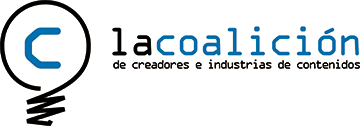869 internet domains and sub-domains were blocked in 2021 under the Protocol for the Enforcement of Intellectual Property Rights Protection
The Protocol was signed on 8 April 2021 by both Internet access operators and content creators in a solemn..
- The Protocol was signed on 8 April 2021 by both Internet access operators and content creators in a solemn ceremony presided over by the Minister of Culture and Sport.
- The agreement has managed to enhance compliance with the Intellectual Property Law, self-regulating action on websites that infringe these rights, including ‘mirror websites’.
- This is a pioneering collaboration between the cultural industries sector and telecommunications operators and is helping to consolidate a healthy, strong, and competitive digital ecosystem.
21-Jan-2022.– A total of 172 Internet domains and 697 subdomains were blocked in 2021 to prevent illegal access to millions of works (books, musical or audiovisual pieces, video games…) protected by intellectual property rights.
These blockages are the result of the efforts made by the Ministry of Culture and Sport, through the Directorate-General for Cultural Industries, Intellectual Property and Cooperation, rights holders and internet service providers, signatories to the Protocol for the strengthening of the protection of intellectual property rights.
On 8 April 2021, Internet access operators in Spain and representatives of intellectual property rights holders, creators and content industries signed, upon the proposal of the Ministry of Culture and Sport, the aforementioned Protocol. This is a new cross-industry self-regulatory mechanism to improve the effectiveness of legally authorised judicial and administrative rulings on infringing websites. Thus, under the protection of current legislation, the Protocol is making it possible to protect more effectively and promote the development of the legal supply of content in Spain, together with the other legal instruments in force.
Among other measures, it was agreed to regulate a global response to judicial and administrative rulings on infringing websites to their ‘mirror sites’ or replicas, created under other domains or subdomains to circumvent existing legislation and court blocking orders.
This agreement has been a milestone in the protection of intellectual property and the fight against illegal supply as an objective of understanding and collaboration between strategic sectors, and has placed Spain at the forefront in Europe in this area alongside countries such as Germany, Portugal and Denmark. This measure is undoubtedly promoting the consolidation of a healthy digital ecosystem where the legal supply of content can operate normally, respecting creators and telecommunications companies while bringing benefits to consumers, employment and the economy, the retention and attraction of talent and, in short, to society as a whole.
In 2021, the Technical Committee representing the parties to the Protocol presented 32 queries on a mostly weekly basis, meeting the submission requirements in an accurate and consistent manner. The response from the Ministry of Culture and Sport was always less than 72 hours (in the last three months there were many occasions when the 36-hour deadline for issuing the proposal was not exceeded).
The signatories of the Protocol are, on the side of the culture sector, the Coalition of Creators and Content Industries, formed by AIE (Artists, Performers and Players), AEVI (Spanish Association of Video Games), AGEDI-PROMUSICAE, SGAE (General Society of Authors and Publishers), CEDRO (Spanish Centre for Reprographic Rights), EGEDA (Audiovisual Producers’ Rights Management Entity), FEDICINE (Federation of Film Distributors) and FGEE (Federation of Spanish Publishers’ Guilds), FEDICINE ( Federation of Film Distributors) and FGEE (Federation of Spanish Publishers’ Guilds), and, from the Internet access operators side, the members of the Spanish Association for Digitalisation (DigitalES) – Telefónica España, Orange, Vodafone, and the Masmovil Group – as well as Eurona and the Euskaltel Group..
The Ministry of Culture and Sport is currently encouraging other agents in the digital ecosystem to join this Protocol, thereby making visible a major agreement to strengthen the protection of fundamental rights on the Internet for the benefit of the entire society.
